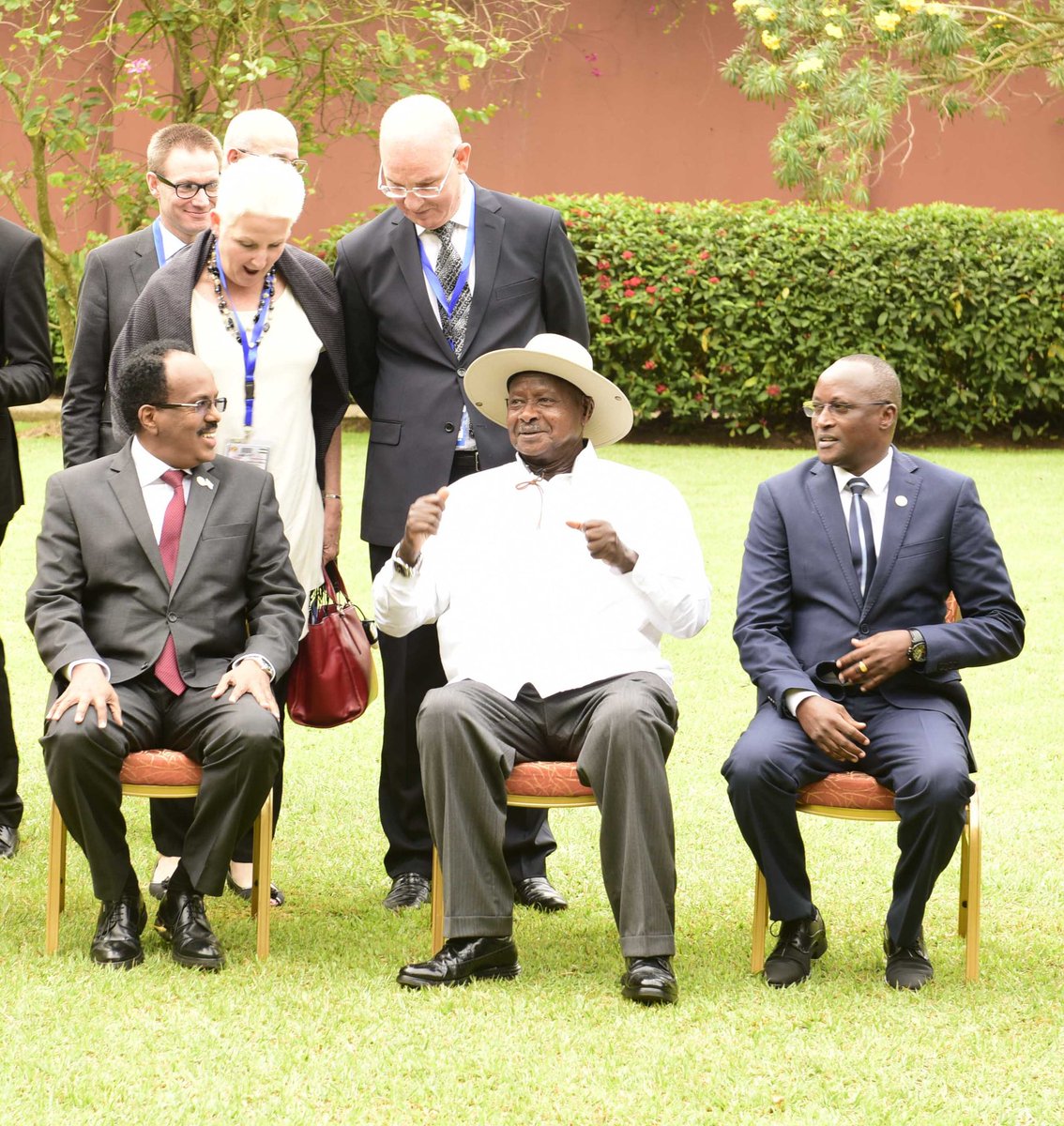Troops contributing countries warn against Amisom draw-down


Countries contributing troops to fight terrorists in Somalia have agreed not to pull out of the war-ravaged Horn of Africa state as this would “lead to a reversal of the gains made by African Mission in Somalia (AMISOM)”.
In a communique released on Friday evening, leaders from the contributing countries under the AMISOM noted that the Somalia National Army was not yet strong enough to take care of security concerns there.
The meeting was attended by President Yoweri Museveni of Uganda, President Mohamed Abdullahi Mohamed of the Federal Republic of Somalia, and Gaston Sindimwo, First Vice President of Burundi, as well as officials from Kenya, Djibouti and Ethiopia.
The communique said the leaders had noted that “despite the notable achievements, the situation remained fragile with Al-Shabaab and other terrorist groups remaining a threat to the country, region and international peace and security”.
The leaders also “recalled the UN Security Council Resolution of August 2017, whose main thrust was the phased reduction and draw-down of AMISOM troops by 2020”.
AMISOM was created by the African Union’s Peace and Security Council in 2007 with an initial six month mandate on a peacekeeping mission. The aim of the peacekeeping mission was to support a national reconciliation congress. Later, the mandate was extended as terrorists loyal to Al-Shabaab continued attacking different countries in the east African region, with strong bases in Somalia.
In November last year, AMISON announced that it would withdraw 1,000 of the 22,000 fighters from the Horn of Africa by the end of the year and that all foreign peacekeepers would have withdrawn by the end of 2020.
However, on Friday, the leaders also requested the UN and the European Union to continue supporting operations of AMISOM beyond 2018.
Countries which contribute peacekeepers to AMISON include Uganda, Burundi, Ethiopia, Kenya and Djibouti.
The leaders also revealed that the matter will be communicated with the UN Security Council.
SOURCE: XINHUA